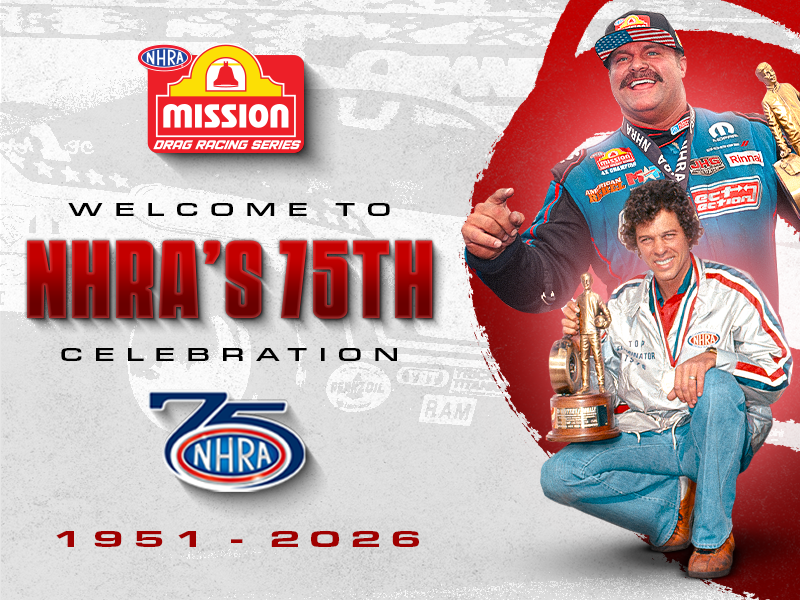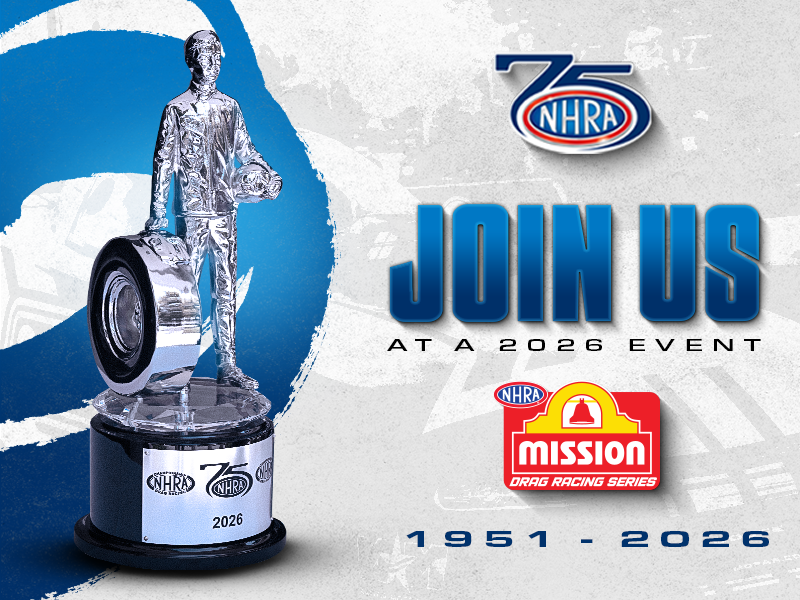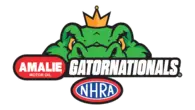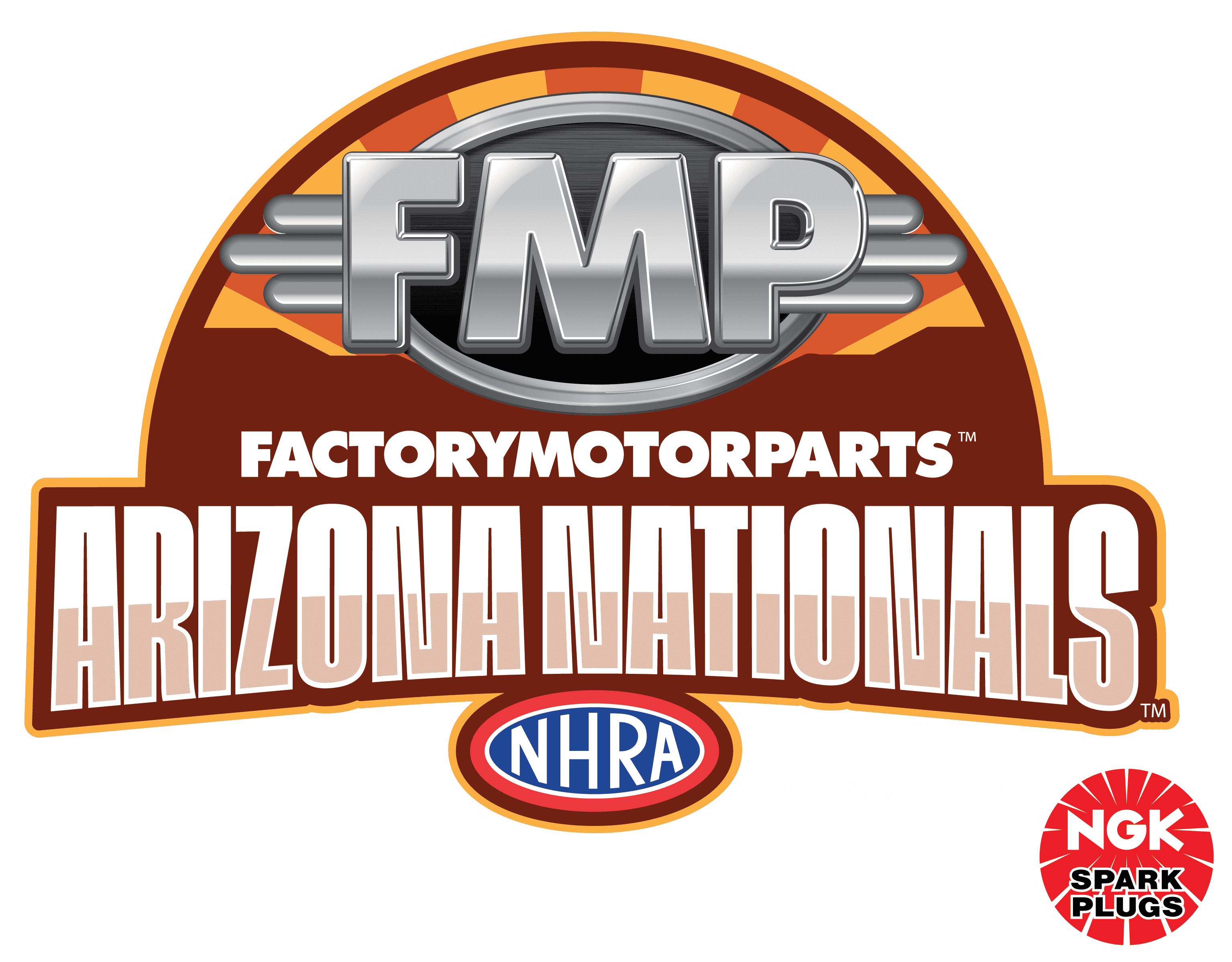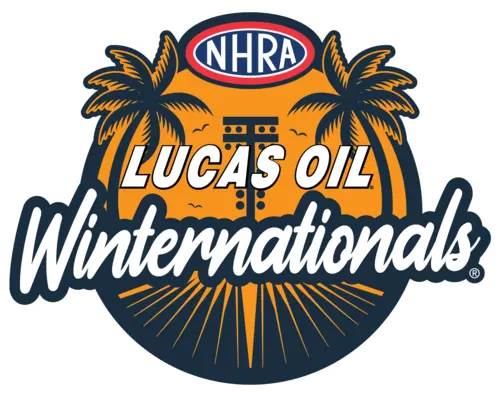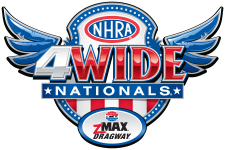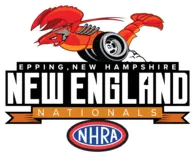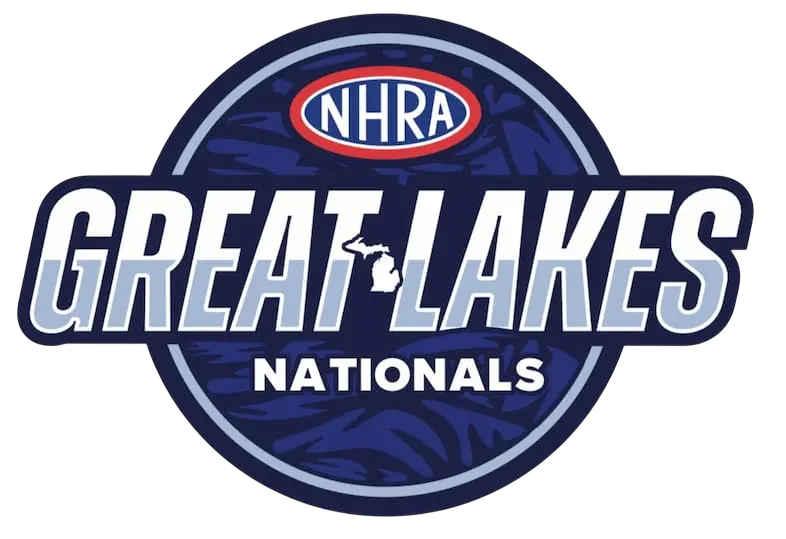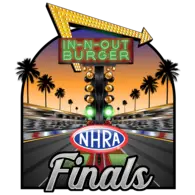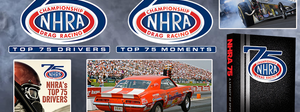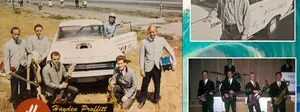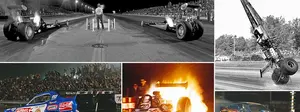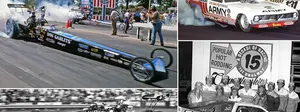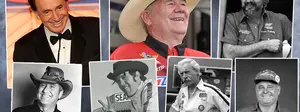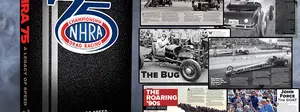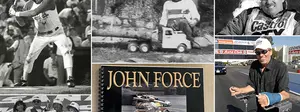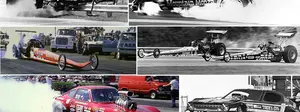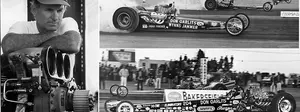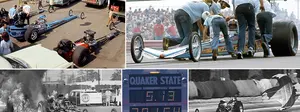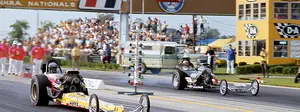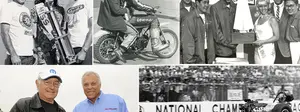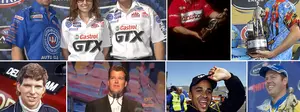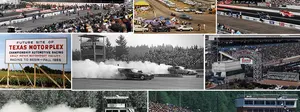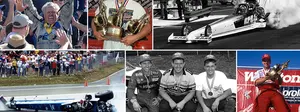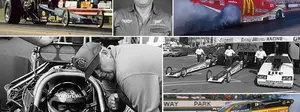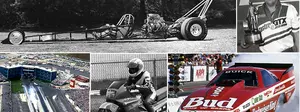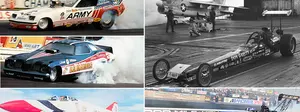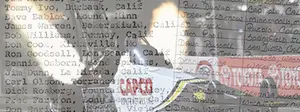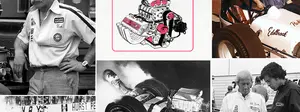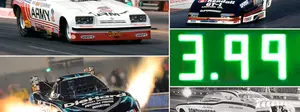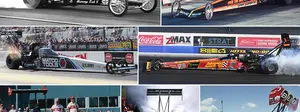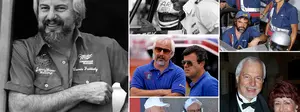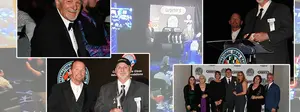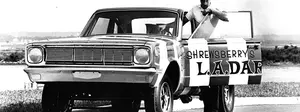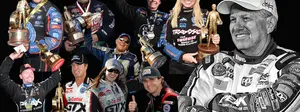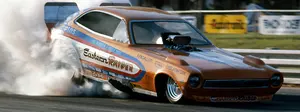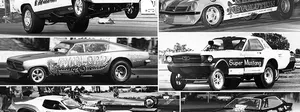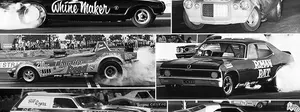Tony Schumacher: Indy Top Fuel dominator
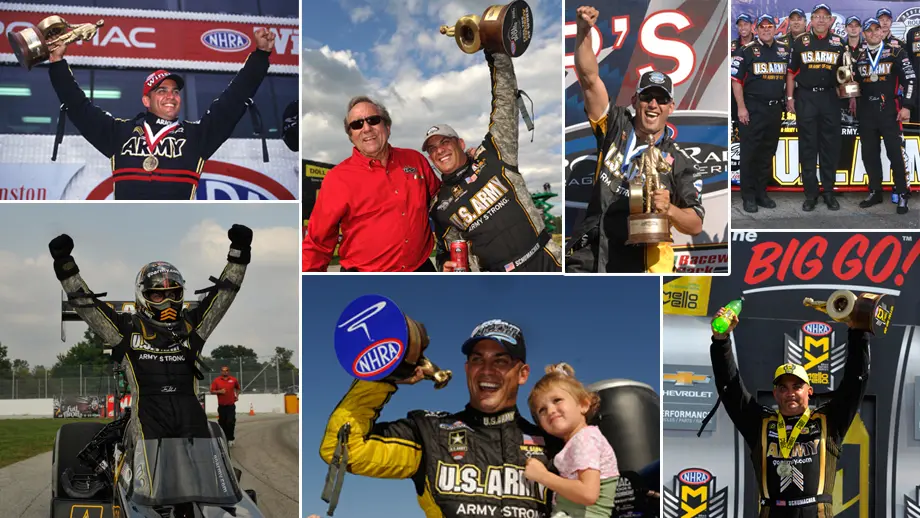
For most of us who grew up as drag racing fans in the 1960s and early ‘70s, Don Garlits was Top Fuel, and when it came specifically to Top Fuel at Indy, there was no doubt that “Big Daddy” was The Man. He won the event in 1964, 1967, 1968, 1975, and 1978 with that other famous Don — Mr. Prudhomme — being his only rival for Indy nitro dominator.
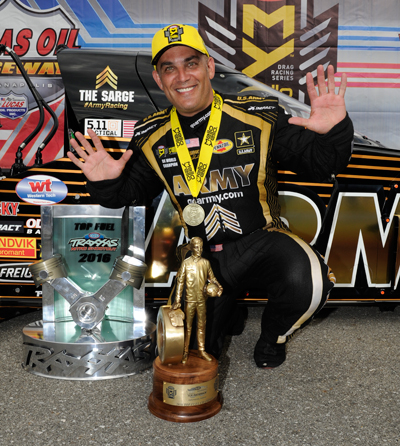
Six years after Garlits’ eighth and final Indy win in 1989, along came Tony Schumacher, the son of 1970s Indy Funny Car winner Don Schumacher and over the next two decades smashed all of “Large Father’s” Indy marks to become Top Fuel’s greatest winner at its grandest event and, following this week’s announcement, the sometimes sidelined superhero will be back this year to try to win Indy for the 11th time and tie the all-time event mark held by Top Alcohol Funny Car great Frank Manzo.
His success at Indy has always fascinated me, so I dug through his records (assist to Mr. Bob Frey), pored over decades worth of photos from the NAtional Dragster archives, and tracked down the eight-time world champ at his Texas home for a walk down Indy Memory Lane.
The early days
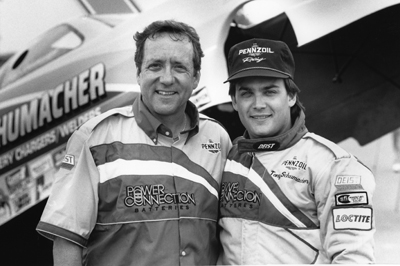
As hard as it is to believe, success — at least not in the form of victory — didn’t come easy for Schumacher who went to nine final round before his first win, but he always dreamed of winning Indy. Although he was less than a year old when dad drove the Stardust Cuda to Indy glory in 1970, it didn’t take him long to understand the event’s significance.
“My dad’s shop was in Park Ridge, Ill., and racers would come over to our house on the race to Indy, and just hearing the stories; that's what they talked about. They lived for that race all year. When I was little, it was the only national event I got to go because we lived in Chicago and would drive to Indy.
And although Schumacher knows the way to the winner's circle, he admits he didn't always know the way to the track.
“When I got my first car, my dad was at Indy and I tried to drove there to meet him,” he remembers with a laugh. “I ended up in Ohio. We didn't have Google Maps back then.”
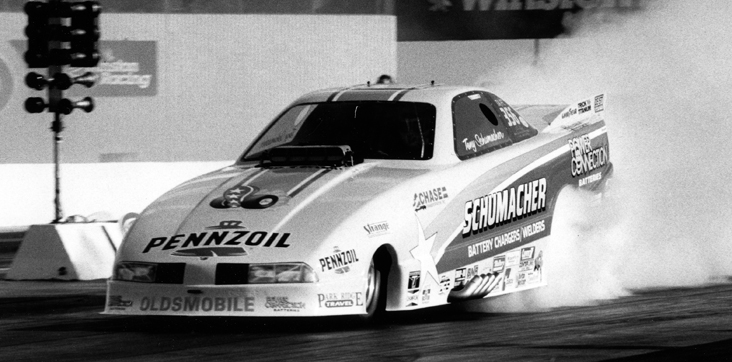
Young Mr. Schumacher worked his way into Top Fuel, racing in Super Street and Super Comp and even driving a jet Funny Car for a time. His first trip to Indy was in an Alcohol Funny Car in 1995. He barely qualified, making the field in the No. 16 spot which meant a first-round date with the No. 1 qualifier, which back in the mid-1990s usually meant — and did mean this time — an uphill battle against Pat Austin.
The record only shows that Schumacher broke in the first round against Austin, who went on to win the event, besting Bob Newberry in the final for his sixth and final Indy win.
Welcome to Top Fuel
Schumacher got his chance to move into the nitro ranks in 1996 with the brothers Peek — Bonneville veterans Greg and Mike — who offered him the seat in their Colorado-based dragster, previously driven to middling success my Clayton Harris and Rance McDaniel. They set a goal to race at Indy that year but struggled mightily.
“I tried to make a ton of license runs but we’d smoke the tires every run,” he recalled. “I got my license because I had driven a jet car for two years, so I had had made 300-mph runs, and because I shut it off on time when it did smoke the tires, and they said it was more impressive that I shut it off, so they let me go to Indy.
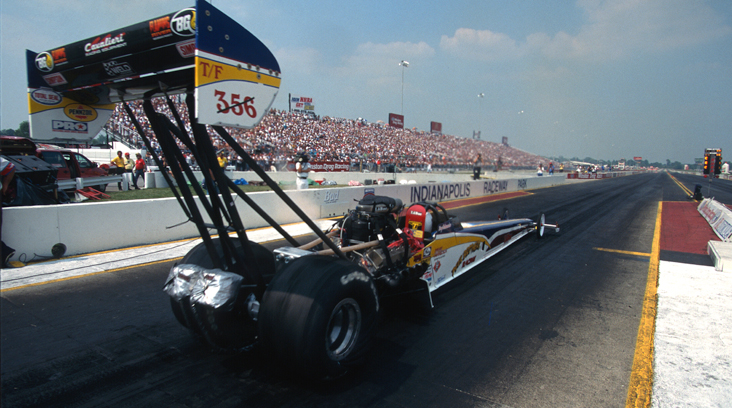
“When we got there, I hadn’t gone down the racetrack under power yet, but somehow we qualified 16th. I'm very thankful I had good leaders. My dad really couldn't teach me how to drive a Top Fueler because they are so different than when he ran; he could explain what he knew, but it took a guy like Cory [McClenathan] to really help me out at the beginning. He was the only one who stepped up and said, ‘Here's what I think.’
"So, being brought into Indy, the biggest race of all and barely squeaking in was amazing. I remember standing on the starting line in that final session watching Shelly Anderson try to bump me out and she smoked the tires. You hate being that guy that's excited about someone else's misfortune, but I was. Cory leaned over and said, 'Dude, you're in,' and it was like], 'Wow are you kidding me?' We qualified for Indy in our first race."
As Schumacher had learned the year before, qualifying No. 16 means a first-round date with No. 1, but in this case, tragedy interceded. Blaine Johnson, the class' fast-rising star and the odds-on favorite to win the championship with tuning brother Alan, was killed in a horrible accident at the end his 4.61-second No. 1 qualifying pass on Saturday. An emotional tribute on the starting line Monday made it even harder of everyone, including Schumacher.
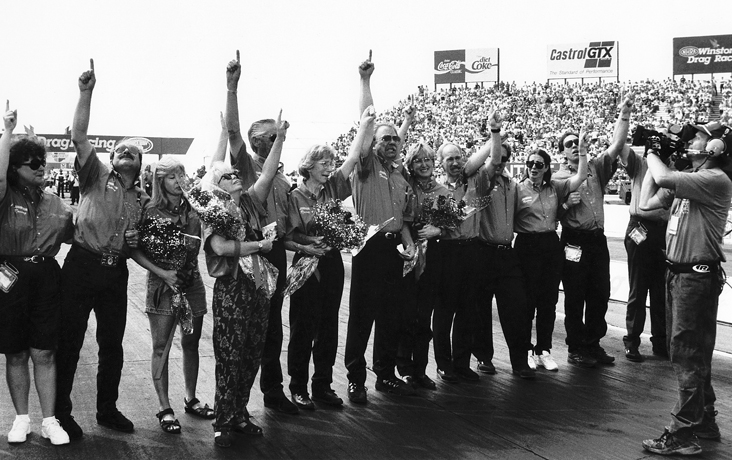
“That's how I was welcomed in the NHRA drag racing,” Schumacher solemnly acknowledged. “It was an incredibly brutal weekend. Learning to drive a car, watching the guy who was the best there is at that lose his life in a crash; it was just a crazy way to be brought in.”
First try, first final
Incredibly, Schumacher and the Peeks reached the final. After his first-round bye in Johnson’s absence, he shockingly beat two of the class’ best, Larry Dixon and Mike Dunn to end up facing, of all people, McClenathan, in the final.
“Me and Mike both smoked the tires at the Christmas Tree and I had to get back onto the gas, which I had never done that before. Mike had a camera mounted on his car facing back at the engine, and you can see him pedal it and see the blower come off and turn sideways. It was insane and then to get a chance to run Cory in the final, was just too much to believe.
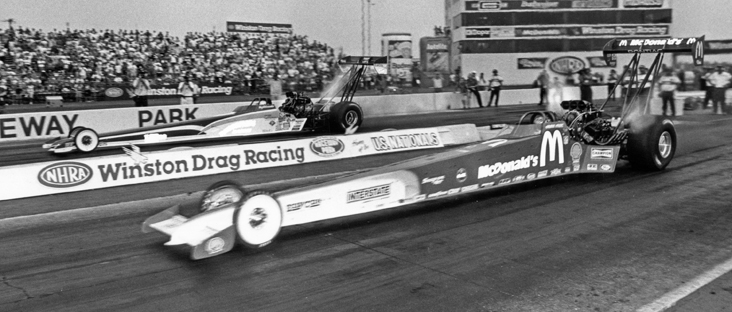
“He was driving the McDonald's and I wasn't a threat to him, but I ended up running him in the finals. He had no problem helping me, and throughout my career, I've helped drivers. Almost any time someone asks a question I have an answer because I just feel like when you race against someone, you should get their best. In the final, Cory Mac gave everything and made a good run and beat us.
“We felt pretty good about that runner-up so in 1997 we tried to make a go of it all year, but we really struggled. Dale Adams was our crew chief, but he also had another full-time job, Mike and Greg Peek loved he sport — I’d kill to have them back out here — but we had a rough year. We were all still pretty new. We came back to Indy and couldn’t even qualify.”
Charging ahead in the 2000s
The Schumacher clan built their own dragster for 1998, sponsored by Exide Batteries and initially tuned by former Prudhomme wrench Bob Brandt. Another nitro veteran, Dan Olson, replaced Brandt and not only tuned long-overdue Schumacher to his first event win at the 1999 Dallas race after nine straight runner-ups, but also to the championship that season.
“We just started to have some mojo, went to a bunch of finals, and won in Dallas, my first win,” he said. “I’ll never forget it was against Scott Kalitta, and he was kicking my ass, and then his car disappeared.”
The 2000 season brought the team a new sponsor in the U.S. Army, and together they would race into battle for the next 18 seasons. They didn’t win the championship that year, but Schumacher did win Indy for the first time.
They came into the event hot off a win two weeks earlier in Brained and beat Doug Herbert, Dixon, and Kenny Bernstein en route to the final against longshot Gary Clapshaw.
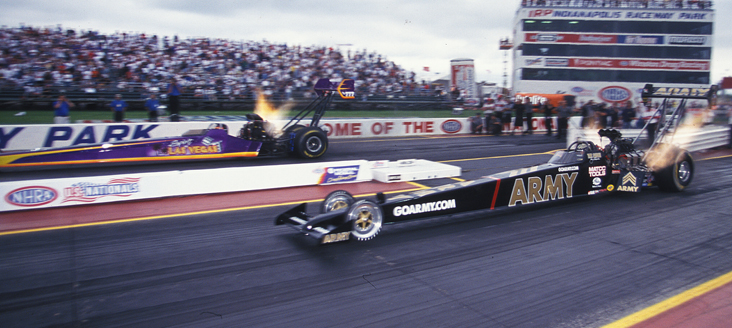
“We beat Clapshaw in the final — he red-lighted — and we were just getting better and stronger,” he reminisced. “The second his red light came on, I was like, ‘Bam! Won Indy!’ in my head. The Army was new, and everything was just aligned and before I even got to the finish line, I thought to myself, ‘We’re an unstoppable team right now.’ Dixon had Dick LaHaie [as crew chief] and a great car, but we were unstoppable.

“It was super cool to follow my dad as an Indy winner 30 years later. I know Dan Olson was jacked. Gary Scelzi and Alan Johnson and me and Dan Olson were really back and forth kicking each other’s butts that year, and for Dan Olson to step up and beat them, that was pretty impressive.”
Their bid for a repeat title ended not long after when a wing failure sent the Army car hurtling over the guardwall in Memphis, breaking Schumacher's leg. Although he gamely returned to battle, neither he nor the car was the same, and Scelzi won the title.
The team struggled for a little while after that — they didn’t even win a race in 2001, and lost in round one of Indy to another longshot, Andrew Cowin — but won Indy again in 2002 from the No. 9 qualifying spot, setting down Darrel Russell and earning Indy-avenging wins against McClenathan and Cowin for the right to face eventual season champ Dixon in the final.
Unbeatable

That 2002 win set the stage for one of the most dominant periods of race ownership in NHRA history. Schumacher ended up winning the event eight of 10 years in the 2000s — 2000, 2002, 2003, 2004, 2006, 2007, 2008, and 2009 — and beat Dixon in the final of four of them (’02, ’05, ’07, and ’09), and you can attribute much of that to a new crew chief.
In 2003, the Schumachers briefly hired Wes Cerny to tune the car, replacing Olson, who went to work on the DSR Funny Cars, but my May they’d landed the biggest fish of them all in Alan Johnson, who had been tuning for Bruce Sarver in Funny Car. They won the Chicago event in their first race together, struggled a little, then won Indy and never looked back.
Rivalry renewed
In addition to McClenathan, Schumacher has had some epic Indy battles with Doug Kalitta, whose Mc Tools dragster he beat in the 2004 and 2008 final rounds, and Dixon. Schumacher’s only Indy loss between 2002 and 2009 was to Dixon in 2005.
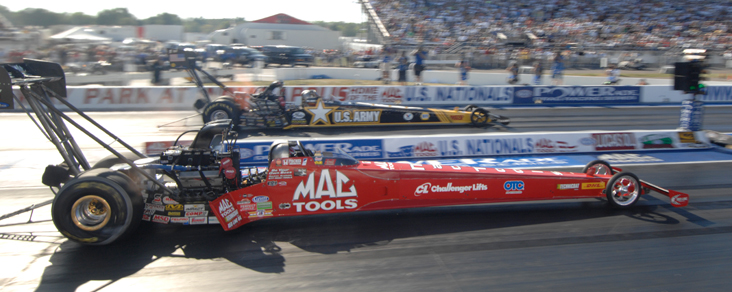
“For some years but I remember running Kalitta and I remember thinking, ‘Man, it’s the Mac Tools U.S. Nationals and we keep beating this poor guy,’ and Dixon, we just sucked the wind out of his sails at that race. I remember him beating me once — we hit the wheelie bar and smoked the tires — and I remember watching him and he was so excited — like it was the 1980 Olympics of hockey, where the Americans beat the Russians who always won the Olympics — because we’d won in three straight years and he finally beat me. It was still pretty cool.
The first-round blues
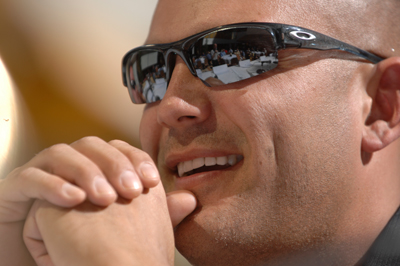
For all of the Indy wins, Schumacher also has had five first-round losses at his favorite race – including four in his last eight tries — and he tries his best — visibly at least — to take them in stride.
When I asked him how he deals with those first-round losses, he responded candidly and succinctly.
“Angrily,” he said, then went on to add a caveat that speaks to his persona as a role model, developed through all of the years speaking to youth as part of NHRA’s Youth and Education Services program.
“I’m calm and cool and walk and shake their hand because I will not go let a kid see me that way,” he said steadfastly. “These kids deserve the right to see an athlete get beat and still have the same respect for the other team. But I'm not happy inside. It hurts because it means you have to wait another year to try to win it again. It’s a big deal.
“Why do we lose in the first round there? It’s simple. To win that race you have to haul ass four times – not two times, not three and a half times, all four — so, yeah, we push it in the first round because people are going to use every part, every piece, every asset they have to beat you, especially when you're me with my record there. I appreciate it because it shows their respect.”
Breaking ‘Big’

Schumacher accomplished the once-unthinkable with his eight Indy win in 2009 — with new crew chief Mike Green — as he tied Garlits’ once unassailable mark. Three years later he beat Spencer Massey to win his ninth, and Garlits was there to cheer him on.
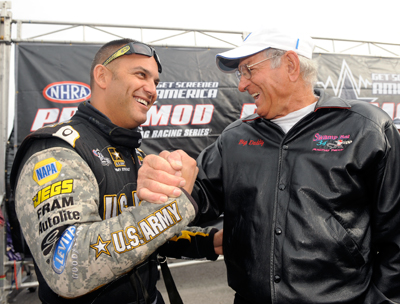
“To have ‘Big Daddy’ Don Garlits standing behind me, hoping I win and break his record was amazing,” he said, still a little awed by it all. “I wasn’t deep down in his heart to know how he really might have felt, but he was jumping up and down and did everything you could do to look like he had the most respect, and I love that he did that.
“That win was huge. Later on in my life, when I'm looking back, that will be like ‘The Run' [their stunning 2006-championship-winning pass at the Finals], one of my accomplishments that you go ‘Wow.’ “
What have you done for me lately?
Schumacher's most recent Indy win came in 2016, when he defeated on-the-ascent Steve Torrence, today's reigning and two-time world champion, to pocket win No. 10, one better than Hoosier Pro Stock legend Bob Glidden.
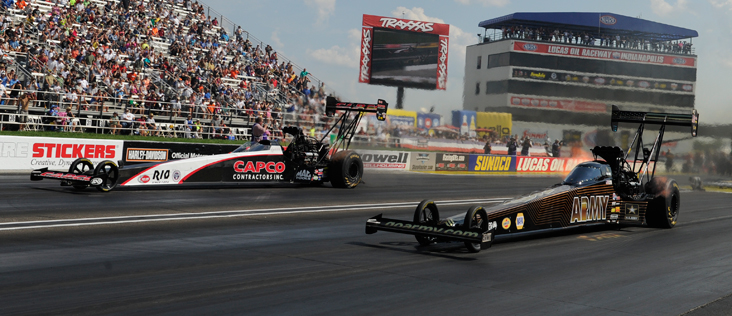
“That was another amazing one,” he marveled. “We won by six 10 thousandths of a second. To understand what it’s like, you’d have to have been sitting in my seat. You have a chance to win more than Bob Glidden and you're 1,000 foot away from the finish line, you're running Steve Torrence in the finals. This ain't no putt down there; this is a big freaking race, and we pulled it off.
“If someone says, ‘We gotta run, you can only take 10 trophies,’ that’s one of them.”
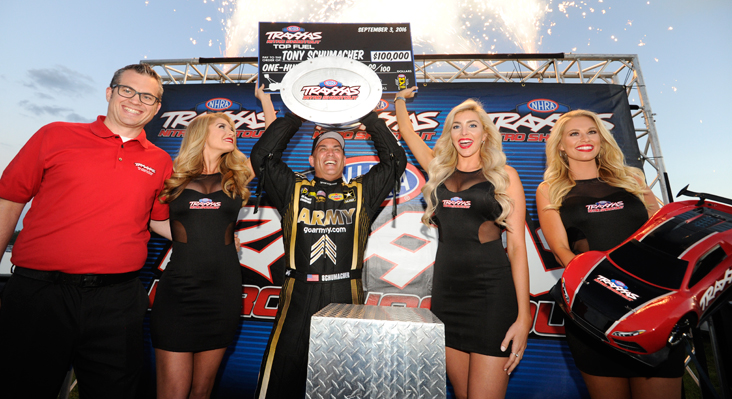
To make matters even more sweet for the Army team, they also had won Sunday's Traxxas Nitro Shootout, their second victory in the $100,000-to-win companion event.
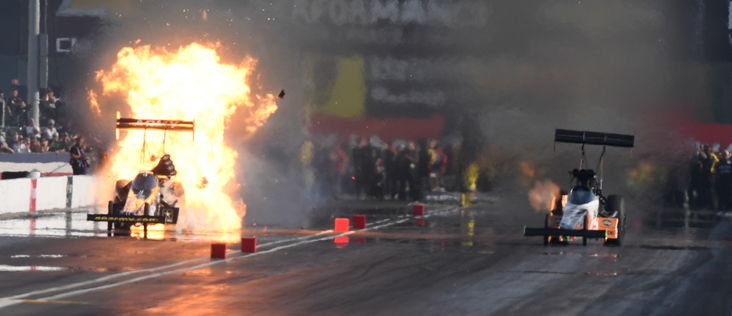
2017 was another story as the Army team was knocked out in the semifinals by another unlikely foe, first-time finalist Kebin Kinsley, and the event was equally forgettable for this massive blower explosion on its final qualifying pass Sunday that made for a long evening before eliminations the next day.
Schumacher lost in the first round of his most recent try in 2018, falling to his nemesis, Torrence’s father, Billy, and then had to sit out the event for the first time in 25 years last season when he was without a sponsor. He spent part of his time doing some announcing with the NHRA on Fox TV crew.
“I got to sit up there in the booth and announce and got to watch Doug Kalitta win Indy,” he said, drinking from the half-full glass. “Doug is one of the best drivers out there known to this sport, period. He’s paid more dues than anyone out there and has been at the beaten end of the stick so many times. In all honesty, I've never been so excited to see someone win Indy if it wasn't me. I felt a little the same way watching Terry McMillen do it the year before, seeing people win who are deserving of winning the race.
Going for No. 11
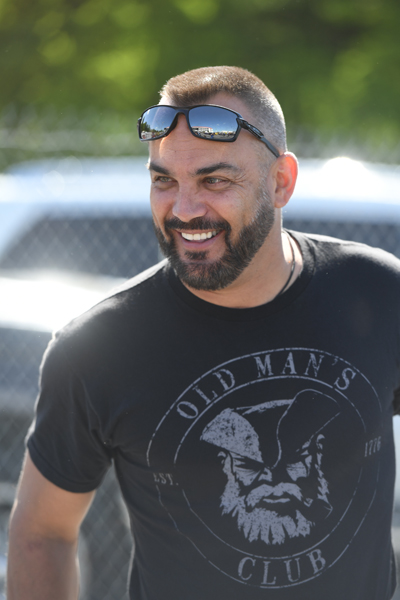
Which brings us back to 2020, and Schumacher’s chance to tie Manzo.
“Indy is my Magic Kingdom; every driver has one — for years, it was Sonoma for Doug Kalitta — and for me to have such a great dominance at Indy is really something,” he said. “I can’t begin to explain [my success there] other than I think we are better under pressure and I think because the race is a bigger race, like a Pomona at the end of the year when you have to win. They’re just so big, I think I try harder.
“There are people who rise and get better when their heart rate’s up and there are people who choke, so I'm extremely thankful that during the big moments, we performed better because you could be the guy that wins the other stuff but has a hard time under the bigger circumstance.
“Even though we’ve all run at Indy a couple of times already this year, in my mind, and in the team's mind, it's still the Big Go and different.
“Is it a guaranteed win? Heck no. These and baddest dudes in the world driving cars, but I have a chance to put everything on the table and leave no doubt and, if I can make it 11, how insane would that be?”
Phil Burgess can be reached at pburgess@nhra.com
Hundreds of more articles like this can be found in the DRAGSTER INSIDER COLUMN ARCHIVE



